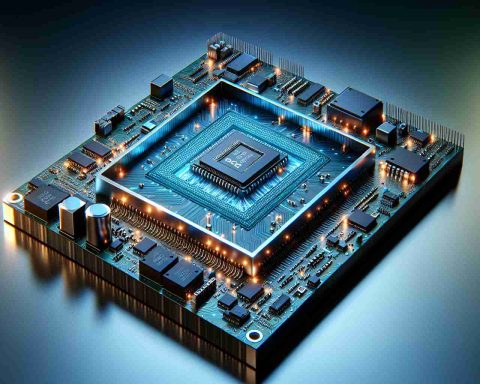Gaming on Linux is rapidly evolving, reshaping the landscape and future of gaming platforms. Recent developments indicate a significant shift with the introduction of new technologies that enhance the gaming experience for Linux users. As major developers release high-profile games with Linux support, gamers are witnessing a revolution that many deemed unlikely just a few years ago.
Innovations like Steam Deck have accelerated this trend. Valve’s portable gaming device is designed to run Linux, proving the platform’s potential to handle mainstream gaming demands. The Proton compatibility layer, a key component in this evolution, allows Windows-exclusive games to be played smoothly on Linux. This technology minimizes the barriers between game developers and Linux enthusiasts, fostering a more inclusive gaming ecosystem.
Moreover, game engines like Unity and Unreal Engine are increasingly supporting Linux. This expansion means indie and AAA developers can more easily target Linux alongside other major platforms. As a result, Linux gaming libraries are growing, attracting more users who value open-source environments.
Looking ahead, the horizon for Linux gaming appears promising. Expect further hardware innovations and partnerships between tech giants and Linux distributors, enabling smoother experiences and pushing performance boundaries. With the gaming landscape becoming more diverse, Linux stands as a pivotal player, promising exciting developments and more inclusive access for gamers worldwide. Linux is not just about operating systems anymore; it’s about reimagining the gaming world.
How Linux is Quietly Transforming the Gaming World
The gaming industry is witnessing a transformative shift as Linux emerges as a formidable platform for gamers and developers alike. This evolution is fueled by a series of groundbreaking innovations and collaborations that promise to redefine the future of gaming.
## Steam Deck and Proton: A Game-Changer for Linux
Valve’s introduction of the Steam Deck has proven to be a pivotal moment for Linux gaming. This portable gaming device is fundamentally altering how mainstream audiences perceive the platform’s capabilities. By being rooted in Linux, the Steam Deck showcases the potential for seamless gaming experiences that rival traditional systems. A crucial component of this transformation is the Proton compatibility layer, which bridges the gap between Windows-exclusive games and Linux. Proton’s ability to allow smooth gameplay of these titles has eroded longstanding barriers, inviting more developers and players into the Linux ecosystem.
## Expanding Horizons with Game Engine Support
Major game engines such as Unity and Unreal Engine now offer robust support for Linux. This development opens doors for both indie and AAA game developers to include Linux in their platform lineup without excessive hurdles. As these engines continue to evolve, they ensure that Linux gaming libraries swell with diverse titles, gradually attracting a growing community of gamers who appreciate open-source systems.
## Linux Gaming: Pros and Cons
Pros:
– Open-Source Flexibility: Linux offers an open-source environment that encourages creativity and customization, appealing to a tech-savvy audience.
– Performance and Stability: Many find Linux to be a stable and efficient platform that can effectively harness gaming hardware’s potential.
– Cost-Effective: Generally free, Linux provides an economical alternative to paid operating systems.
Cons:
– Learning Curve: New Linux users may face a challenging learning curve, especially when setting up drivers and games.
– Compatibility: While Proton and game engine support have improved, not all games and hardware are fully compatible with Linux.
– Limited Native Titles: Despite growing libraries, the number of games with native Linux support still lags behind other platforms.
## Market Analysis and Future Predictions
The market analysis indicates a trend toward increased adoption of Linux in gaming, heralded by milestones like the rise of Steam Deck and expanded engine support. Analysts predict that by 2025, Linux will carve out a significant share of the gaming market, driven by strategic partnerships with tech companies and continuous improvements in hardware compatibility.
## Conclusion
Linux is steadily ascending as a mainstream gaming platform, challenging longstanding industry norms. With ongoing innovations such as the Steam Deck, and expansive support from top game engines, the future of Linux gaming appears promising. It is poised to offer a more inclusive and versatile environment for gamers globally, marking an exciting chapter in the gaming world. For more information on the landscape of Linux in technology, check out Linux Foundation.




















